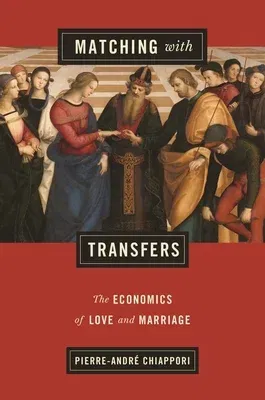Pierre-André Chiappori
(Author)Matching with Transfers: The Economics of Love and MarriagePaperback, 26 May 2020

Qty
1
Turbo
Ships in 2 - 3 days
In Stock
Free Delivery
Cash on Delivery
15 Days
Free Returns
Secure Checkout

Part of Series
Gorman Lectures in Economics
Part of Series
Gorman Lectures in Economics (Hardcover)
Print Length
264 pages
Language
English
Publisher
Princeton University Press
Date Published
26 May 2020
ISBN-10
0691203504
ISBN-13
9780691203508
Description
Product Details
Author:
Book Format:
Paperback
Country of Origin:
US
Date Published:
26 May 2020
Dimensions:
22.86 x
15.24 x
1.52 cm
ISBN-10:
0691203504
ISBN-13:
9780691203508
Language:
English
Location:
Princeton
Pages:
264
Publisher:
Weight:
408.23 gm